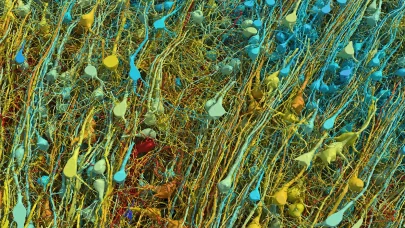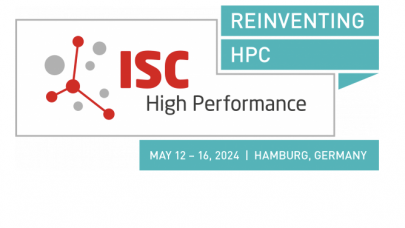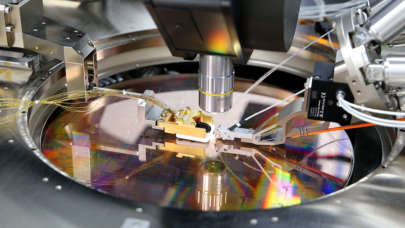The HPC cloud top research stories of the week have been hand-selected from prominent journals and leading conference proceedings. Items this week include an evaluation of a cloud storage service, an HPC cloud proof-of-concept, and a survey of cloud-based workflows.
Evaluating Cloud Storage Services for Tightly-Coupled Applications
This week’s HPC cloud item comes from a team of researchers from INRIA and Argonne National Laboratory. Their work “Evaluating Cloud Storage Services for Tightly-Coupled Applications” was published as a chapter in Euro-Par 2012: Parallel Processing Workshops.
 Noting that past HPC cloud research primarily focused on performance as a way to quantify the HPC capabilities of public and private clouds, the team sets out to address the topic of data storage as it relates to traditional HPC applications.
Noting that past HPC cloud research primarily focused on performance as a way to quantify the HPC capabilities of public and private clouds, the team sets out to address the topic of data storage as it relates to traditional HPC applications.
“Tightly-coupled applications are a common class of scientific HPC applications, which exhibit specific requirements previously addressed by supercomputers,” write the authors. They’re referring to the fact that tightly-coupled applications work best when paired with a custom-tuned parallel file system (PFS). And while virtual machines can be outfitted with any file system, including PFS, the setup introduces issues around data persistency.
The research team elect to test a cloud-based storage service, and they opt for an open source platform as opposed to Amazon. They select the Nimbus Cloud framework and its S3-compatible storage service, Cumulus.
The group runs several experiments using an atmospheric modeling application running in a private Nimbus cloud. The results show that the application is able to scale with the size of the data and the number of processes (up to 144 running in parallel), while storing 50 GB of output data on the Cumulus cloud storage service.
Next >> Easy to Use Cloud Service
Easy to Use Cloud Service
Among the many HPC cloud research pieces that were published this week was an Australian endeavor that seeks to transform complicated HPC applications into easy-to-use SaaS cloud services. Researchers Adam K.L. Wonga and Andrzej M. Goscinskia from the School of Information Technology at Deakin University in Australia set out to develop and test a unified framework for HPC applications as services in clouds.
 The duo acknowledge the benefits of HPC cloud. Scalable, affordable and accessible on demand, the use of HPC resources in a cloud environment have been a natural fit for many scientific disciplines, including biology, medicine, chemistry, they write. Still they have observed a steep learning curve when it comes to preparing for and deploying HPC applications in the cloud. This they say has stood in the way of many innovative HPC-backed discoveries.
The duo acknowledge the benefits of HPC cloud. Scalable, affordable and accessible on demand, the use of HPC resources in a cloud environment have been a natural fit for many scientific disciplines, including biology, medicine, chemistry, they write. Still they have observed a steep learning curve when it comes to preparing for and deploying HPC applications in the cloud. This they say has stood in the way of many innovative HPC-backed discoveries.
To remedy this situation and improve ease of use and access to HPC resources, the researchers are looking to the world of Web-based tools, but as they write “high-performance computational research are both unique and complex, which make the development of web-based tools for this research difficult.”
The paper describes their approach to developing a unified cloud framework – one that makes it easier for various domain users to deploy HPC applications in public clouds as services. Their proof-of-concept integrates three components:
(i) Amazon EC2 public cloud for providing HPC infrastructure.
(ii) a HPC service software library for accessing HPC resources.
(iii) the Galaxy web-based platform for exposing and accessing HPC application services.
The authors conclude that “this new approach can reduce the time and money needed to deploy, expose and access discipline HPC applications in clouds.”
Cloud-based Workflow
As the Internet has evolved, many related technologies have come along, such as Web 2.0, middleware, virtualization, and grid computing. All these elements contributed to what is now referred to as cloud computing. The cloud era that is now upon us has brought many advantages, but it has also introduced technical challenges, for example with regard to quality of service (QoS).
A research group from the Jingdezhen Ceramic Institute in Jiangxi, China, proposes that a cloud-based workflow (referred to as a “cloud workflow”) can help rein in operational costs and improve the service quality of cloud computing. In a recent paper [PDF], the researchers introduce the key concepts and features relating to cloud workflows.

The team argues that a cloud-based workflow offers benefits beyond cost reduction. It helps businesses with process harmonization, optimal organization design and change management, and “enables a complex application instance to be abstractly defined, flexibly configured and auto-operated,” they write.
A Workflow Management System (WFMS) is an important tool, according to the authors, one that helps “to define, implement and manage the workflow and to support exchanging information between the group members and tasks.”
The paper also lays out the technical characteristics of cloud workflows, and offers detailed scenarios of how they are used.



























































